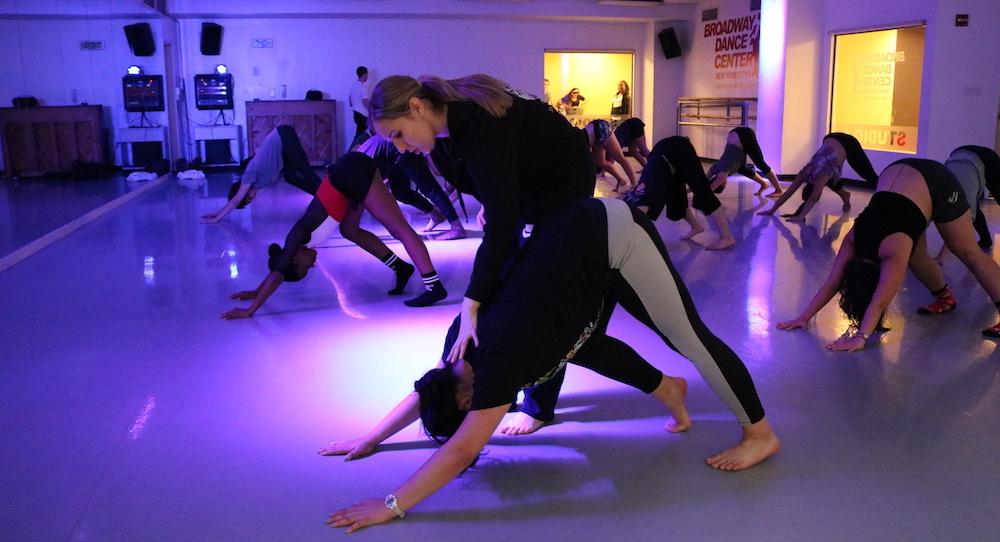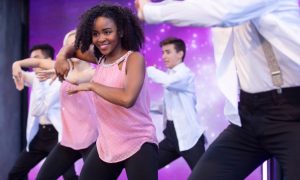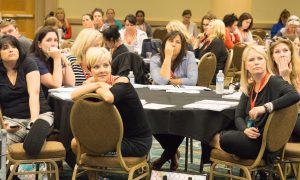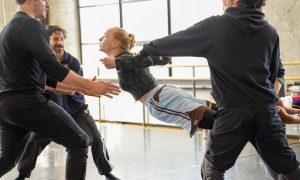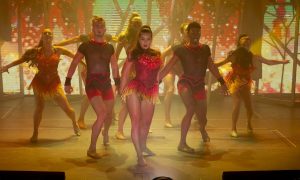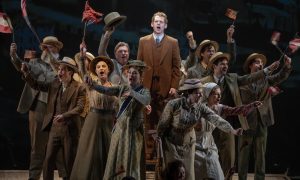As you go back to the studio in 2018 after a holiday break probably filled with family and festivities, it’s a great time to get inspired and rejuvenated for the second half of the school year. Here, Dance Informa offers some New Year’s tips for teachers and ideas for some easy-to-follow resolutions for making the most of the new calendar year ahead.
#1. Give your best.
You have so much to offer as a teacher – a wealth of knowledge, mentorship, a safe place for students to grow and fall and get back up. Try to enter each class with energy and enthusiasm, and don’t hold back on all that you have to share.
“A new year is another opportunity to give our best!” says Emily Bufferd, independent choreographer/producer and teacher at Joffrey Ballet School and Broadway Dance Center.
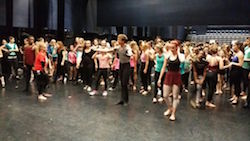
Matthew Prescott leading a class. Photo courtesy of Prescott.
And it’s okay to expect the best that your students can give as well. “I think we could also have the resolution to expect nothing but 110 percent focus and commitment from our students,” shares Matthew Prescott, co-artistic director of Joffrey Ballet School Musical Theater NYC and London, co-artistic director of Joffrey Elite, and co-founder/director of The Institute for American Musical Theatre. “I get the sense that structure and discipline are lacking in many parts of the everyday life for students. The dance studio should be the place that we teach them the skills of focus, discipline, teamwork and responsibility that are necessary to have a successful life outside the studio.”
#2. Care about making your students better.
Take the new year to remind yourself that your job as a teacher is to instruct, guide, inspire and help your students reach their potential.
“Whether your students are returning or are new to dance, it is important to stay connected to students’ lives and care about making them better,” says Melinda Wilson, teacher at Lou Conte Dance Studio in Chicago, Illinois. “Dance can sometimes be something that is impossible to live up to, but kindness mixed with civility and high expectations can be powerful and enduringly persuasive. Dance is filled with creativity and difficult at times to live up to, but overall the creativity is what connects us.”
“Continue to discover new ways of relaying and teaching technique because what worked for student A last year may not be the way student B is going to understand that idea,” Prescott suggests. “It is my goal to be able to connect with every one of my students and make it clear in a way that they can understand the principles of the technique and then apply it to their own understanding of movement.”
#3. Step out of the box.
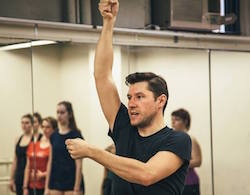
Justin Boccitto. Photo by James Jin.
Sometimes, your students just need something a little different. Don’t be afraid to stray from your normal combinations, verbal cues and playlists.
“Step out of the box!” advises Justin Boccitto, theater and tap faculty at Broadway Dance Center and adjunct faculty at Marymount Manhattan College. “Begin the year with some new approaches to the classes. Surprise your students and yourself. Don’t rely on your usual tricks.”
#4. Come back to class in 2018 feeling refreshed.
“I always advise taking time away from the studio and the students,” Prescott says. “Take the holidays to relax and rest your body and brain. Take the time to fill your tanks with all the love and energy that you can so you can give back to your students what they need.”
Even small things can be done to refresh for the new year. “For myself, I choose to do a choreographed warm-up, but I will change it up drastically for the new year,” Bufferd shares. “I also like to give myself a choreography challenge for my first phrase of the new year (and always, but especially that first one). I tend to prefer pretty lyrical-esque music, so last year for my new year’s combo, I chose to dance to Diplo. We’ll see what 2018 will bring musically!”
#5. Find new music.
A new year means new music! Your students may be tired of the same warm-up song year after year (you may realize you’ve been sick of it, too!), and they may respond well to some new tunes.
“I’m always inspired by music,” Boccitto shares, “so my best tip is to recreate your music library. Find new music or dig deeper into what you already have.”
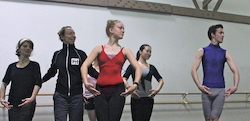
Melinda Wilson with students. Photo courtesy of Wilson.
#6. Make dance accessible for everyone.
Not every student will be a professional, but everyone should be able to have the opportunity to dance if he/she wants to.
“It is a teacher’s job to inspire students inside and outside of the studio and find opportunities to branch out into communities where all forms of dance can be taught and celebrated,” Wilson says. “I would like to make dance accessible to more populations. Young or old, professional or novice, my students are a constant inspiration to me. I believe that creativity is extremely important and can unleash compassion in all of us.”
#7. Still be a student.
While you’re certainly the teacher, be in the mindset that you’re always learning and growing. You can learn from your students, other teachers, your family and the world, and use those lessons to inform your own teachings.
“I am forever and always a student before I am a teacher, and even when I’m teaching, I’m still a student, learning from my kids, always,” Bufferd shares. “I hope to do more observing and learning from my students so that I can better help them achieve their goals, help them take what may seem impossible and make it possible, and aid them in finding the magic that lies in understanding their facilities and being able to utilize that understanding more effectively in their movement.”
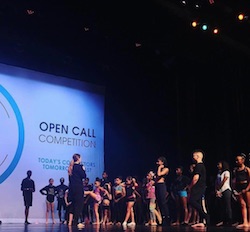
Emily Bufferd teaching at Open Call. Photo courtesy of Open Call Competition.
#8. Continue to inspire and be inspired.
Use any free time to see shows, attend teacher workshops, take classes, read and talk with other teachers. Become inspired, and share these findings with your students.
“Exposing oneself to different ideas and experiences expands our understanding of the world and how we relate to one another,” says Prescott. “The human experience is what we are trying to convey through our art form. With more perspective about who we are and how we interact with the world, we are able to create work and students that truly reflect the world around us. Stay inspired!”
By Laura Di Orio of Dance Informa.


